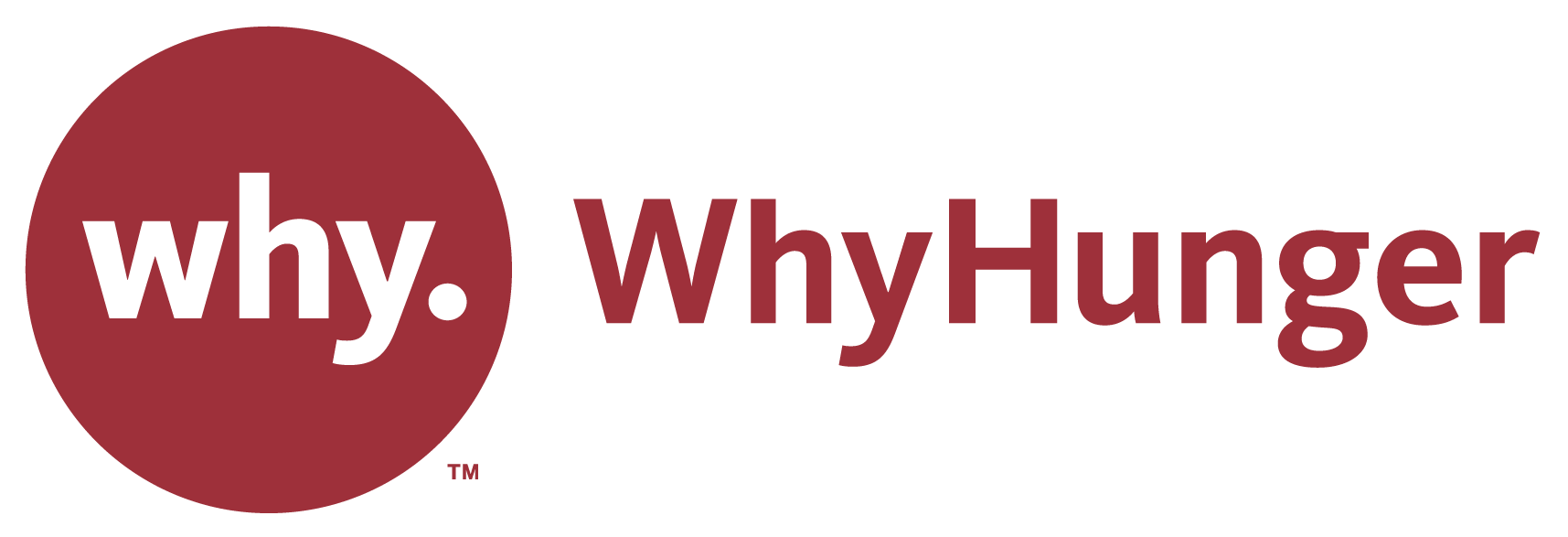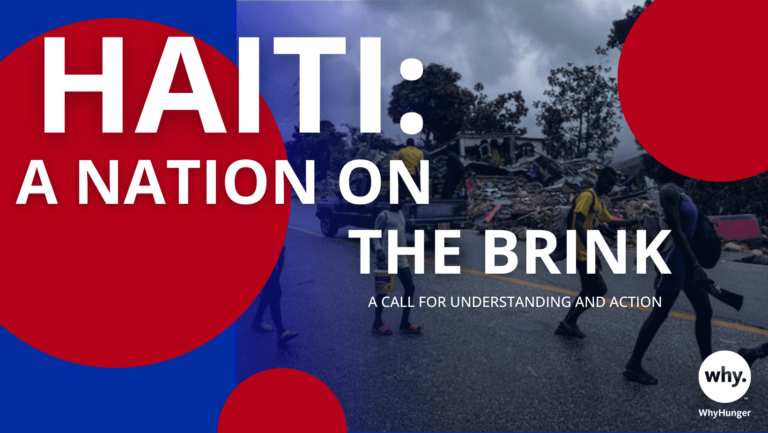
Haiti: A Nation on the Brink - A Call for Understanding and Action
By Kristina Erskine
For decades, Haiti’s development has been suffocated by a vicious cycle of foreign intervention, chronic political instability, and natural disasters. Scars from the 2010 and 2021 earthquakes are still fresh, and now the assassination of President Moïse has plunged the nation into a brutal humanitarian crisis. Today, millions face hunger, displacement, and a future shrouded in uncertainty. But how did we get here?
A History of Interference:
The truth about Haiti's struggle is complex and deeply intertwined with foreign intervention. You see, the nation’s current crisis cannot be divorced from its colonial past. Haiti, the first Black republic in the world, was forced to pay an exorbitant debt to France after gaining independence for about seventy years, crippling its economy from the early on. The U.S. occupation of 1915, with its forced labor and violence, further destabilized the country and set a troubling precedent for future interventions.
The Numbers Don't Lie:
In fact, as Jonathan M. Katz of Foreign Policy magazine points out, the U.S. military presence in Haiti spans at least 41 of the last 108 years, always promising peace and stability, yet never delivering.
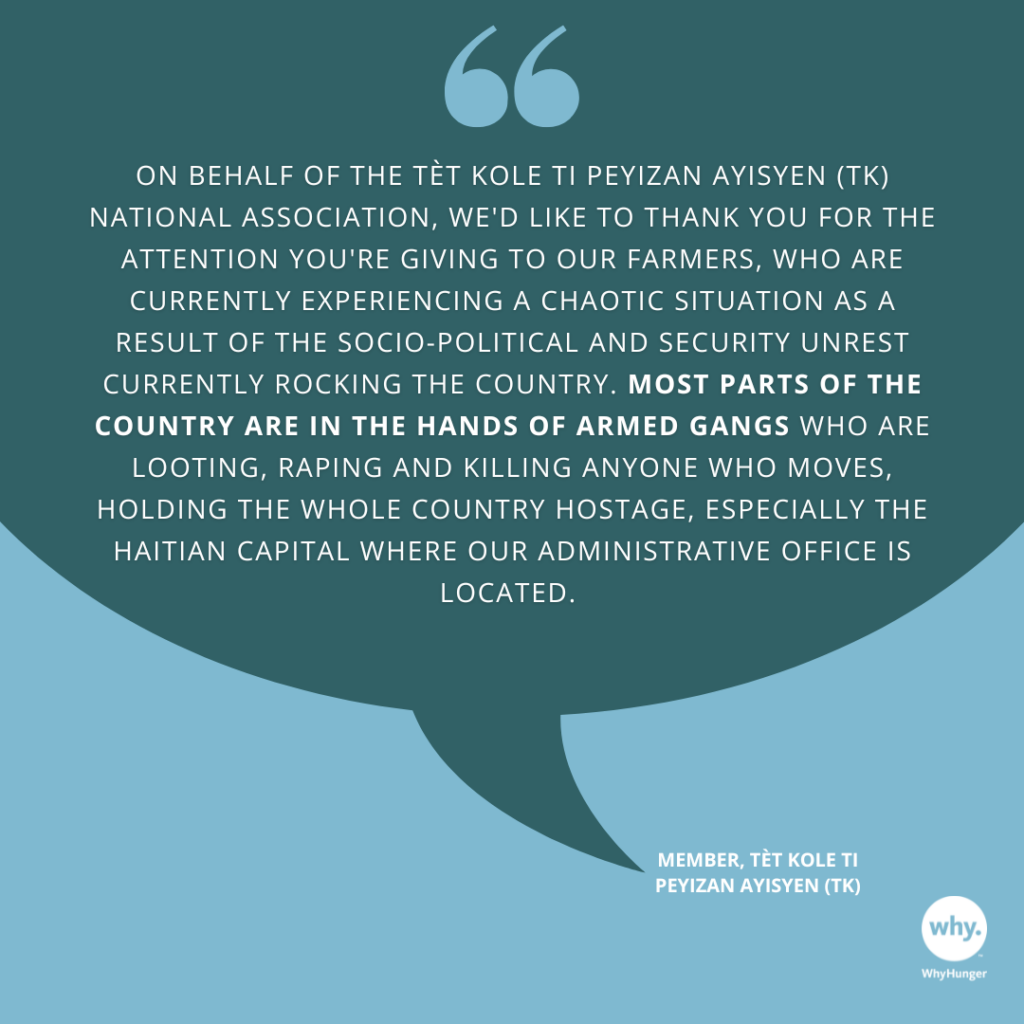 Haiti's Plight - An Echo too Near:
Haiti's Plight - An Echo too Near:
Today, gang violence has escalated to the point of displacing people in their own country. A member of the Tèt Kole Ti Peyizan Ayisyen (TK) national association tells us:
“We'd like to thank you for the attention you're giving to our farmers, who are currently experiencing a chaotic situation as a result of the socio-political and security unrest currently rocking the country. Most parts of the country are in the hands of armed gangs who are looting, raping and killing anyone who moves, holding the whole country hostage... The right to a minimum standard of living for farmers, who are already in a difficult situation, is being trampled underfoot, heralding a major humanitarian catastrophe in the days ahead.”
The result of continuous disruptions is "Peyi Lòk”, a Haitian Creole term for a paralyzed nation. Schools close, essential services grind to a halt, and the most vulnerable suffer.
It is clear that foreign intervention has rendered the will of the Haitian people invisible and undermines Haitian self-determination. So, where do we go from here?
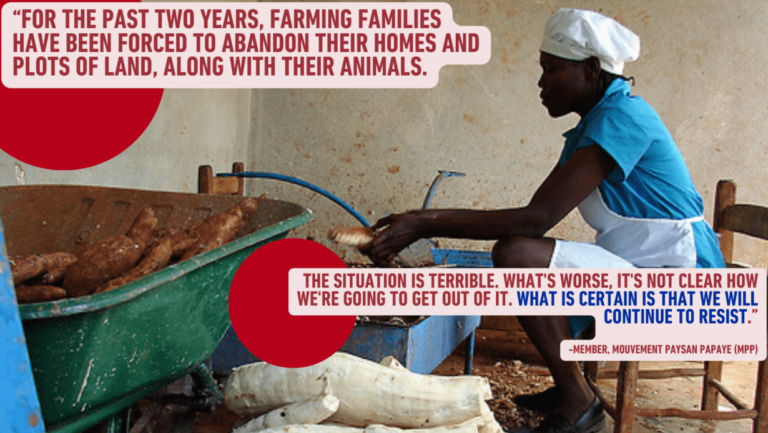
Haitian-Led Solutions:
Haiti needs direct support, not further outside control. This is where WhyHunger’s Rapid Response Fund comes in to meet the moment and fill the gaps. Over the last 10 years, we’ve been building trust and partnerships with Haitian-led organizations. This means we understand that efforts by Haitian leaders, communities and organizations who have lived experience and nuanced understanding of what their country needs are in the best position to restore prosperity.
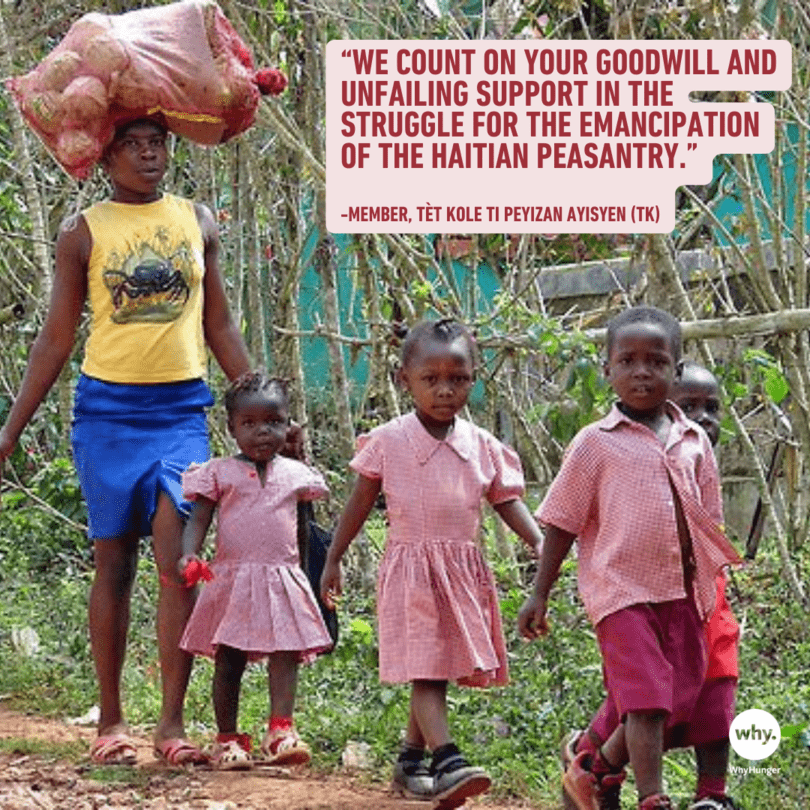
How Can You Help?
We're mobilizing funds to the people of Haiti and we need your support.
- Donate: Every contribution makes a difference. Your support goes directly to Haitian organizations like Peasant Movement of Papaye (MPP) and Heads Together Small Peasant Movement (Tet Kole), who are providing essential aid like food, water, and shelter to those in desperate need.
- Educate Yourself: Research Haiti's history and understand this nuanced situation.
- Raise Awareness: Share information and advocate for solutions that prioritize the needs and desires of the Haitian people.
100% of net donations will go directly to organizations who are providing small-scale farmers and their families with food, water, medical supplies, clothes, temporary shelter, and other critical resources.
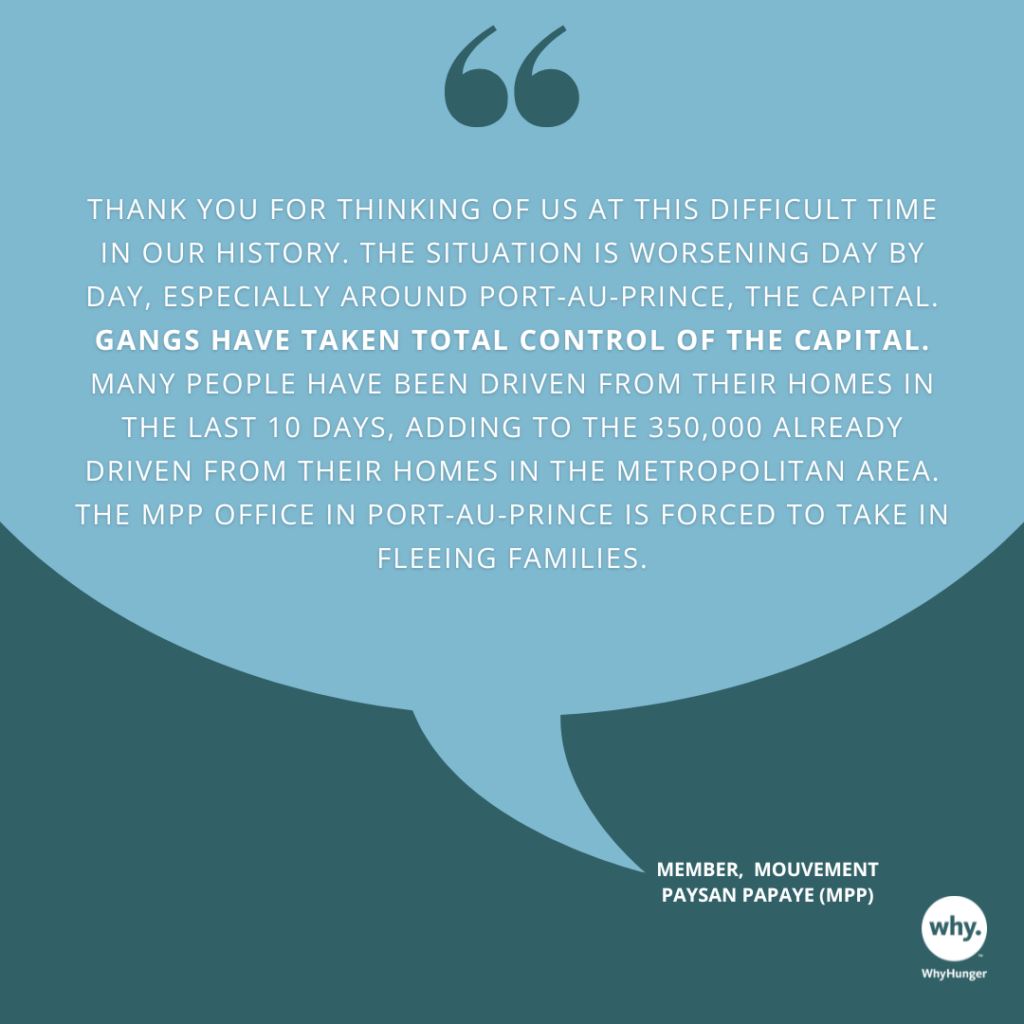
Breaking the Cycle:
Haiti's future is uncertain. But by fostering understanding and supporting Haitian-led solutions, we can be sure that Haiti's future belongs to its people.
Standing in solidarity with Haiti, we have activated our Rapid Response fund to support Haitian-led organizations Peasant Movement of Papaye (MPP) and Heads Together Small Peasant Movement (Tet Kole), who are currently mobilizing massive mutual aid efforts to respond to the urgent crisis as well as work towards longer-term support needed to fully recover.
